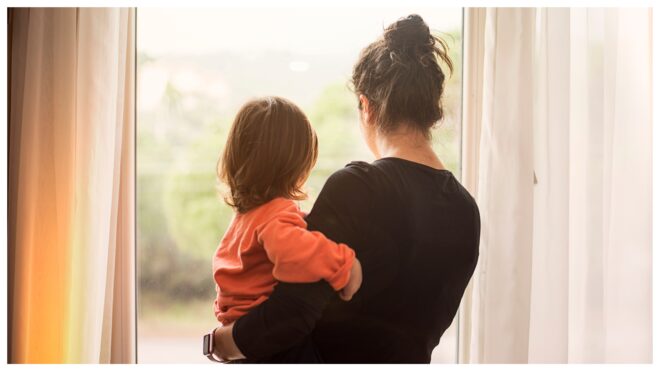
For most of my life, I have described myself as an overthinker. I have spent so much time overthinking nearly everything I have ever said or done — until recently, when I posed the question to myself: Why do I overthink everything?
In the last year, I've turned quite a bit of attention to my habit of overthinking, which ends up leading me to worry, anxiety, and even panic. A big reason I've started reexamining why I have lauded overthinking as a virtue is because of my boyfriend; he's one of those mythical people who don't do any overthinking at all.
There are probably a lot of reasons why people overthink. I used to believe that it was just a natural extension of being a mother, but if I'm honest with myself, I have to admit that my propensity for overthinking developed long before I gave birth in 2009.
I also used to think that overthinking, anxiety, and intuition were one and the same; if I was overthinking, it was because there was something going on that I had to know. Then I read three sentences that changed my life: "One of the easiest ways to tell the difference between a gut instinct and anxiety is by how long your symptoms last. A gut instinct is often a reaction to an immediate situation. Anxiety, on the other hand, might be present regardless of its relevance to your current experience."
In other words, if something happens and I immediately have a feeling about it, that's most likely my intuition talking. But if something happens and I have a feeling about it hours, days, weeks, or even months later, that's most likely anxiety, which, in my case, both feeds and is fed by overthinking.
Overthinking was a whole character in my first marriage; it was something that was practiced and encouraged, even when I had no idea that's what was going on. I was raised by a mother who often wanted to turn around after leaving home to make sure the oven was off; throughout my adulthood I've fought the urge to go back in my home to make sure I unplugged my hair straightener.
Many of us who deal with bouts of anxiety and/or overthinking can point to causes and explanations that seemingly justify our thoughts, feelings, and actions. In my case, I have spent a lot of time doing exactly that, but not nearly as much time asking myself what there is to overthink about in the first place — and what overthinking really does for me. Once I left my marriage, I was interested in finding out more about who I am on the other side of the experience, and unpacking my overthinking has been part of that journey.
While it's fun to share memes about overthinking, and it's definitely encouraged by many to proudly parade the fact that you are a capital-O Overthinker, spending time around someone who doesn't overthink can really cause you to slow down and examine yourself. My boyfriend has been the person who has shown me the power of focusing on positive thoughts, possibilities, and outcomes, even when it's so easy to return to the negative again and again and again.
That doesn't mean any part of learning to take things as they come without thinking about them too much, or resisting the urge to not have a six-hour conversation about the exact same topic just to really beat it to death, has been easy. In fact, it's probably been one of the harder things I've had to do.
Last year I began reading about our brains and was startled to discover that just as much as our minds can reward us for thinking positively, they can reward us for thinking negatively, too. In 2001, Paul Rozin and Edward Royzman wrote about the negativity bias — our brain's tendency to give more importance to focusing on negative outcomes than positive ones.
It's thought that this bias developed because our ancestors had to be constantly aware of dangers that could be lurking. They always had to be on in case someone was ready to harm them or take their resources. But modern life doesn't really have those dangers — while it's true that there are plenty of things that go wrong in the world, a lot of us live lives that on the whole find us removed from real threats most of the time.
I'm not a psychologist or an expert on the human mind, but for me personally, it makes sense that if there's a lack of real danger to be concerned about, my brain will turn toward just straight-up making stuff up to justify this eons-old bias. The trouble is, the tendency to make up things to be anxious about, or even just to worry too much for too long about something I can't control anyway, can have negative consequences in a multitude of ways. Turning away from the light and positive possibilities can impact our relationships with others (including our kids), how well we do at work, and even how much we are able to enjoy daily life (even the fun stuff).
I have realized that a lot of my overthinking and emphasizing possible negative outcomes has been nurtured in large part because I have been taking care of myself, and then myself and my son, for a long time. Due to a variety of circumstances, I've often had to solve problems, come up with solutions, make excuses for the behavior of others, and contend with unpredictable mood changes and actions from people who have been the closest to me.
That's not an excuse, and I'm not saying that I have been perfect, but the further I get away from some people and some situations, the more I understand my role in those scenarios, with those people. The more I see that my tendency to overthink often exacerbated a problem that was tough enough on its own, my willingness to allow my mind to wander — and the way that was so often encouraged — often meant that I lived weeks or even months of my life in an emotional black hole.
One of the hardest things I've learned throughout my journey as a recovering overthinker is that when it comes to thinking positively instead of negatively, it really is so often a choice. As someone who was diagnosed with an anxiety disorder (and who was told months after I initiated my divorce that perhaps I didn't have one at all), I know that this idea can feel impossible. I also don't mean to speak about mental health conditions that I know little about; I know there are real, chemical reasons why some people struggle to focus on the positive at all.
But for me, the reasons I've focused on the negative and overthinking about the worst possible outcomes, or even just those that are mildly negative, is pretty simple: It's just what I've been doing for so many years. Breaking away from that habit has been scary, especially as I've realized that so much of my anxiety and negativity comes down to being afraid of fear itself.
There's a part in Harry Potter and the Prisoner of Azkaban that I often think of these days. While Harry is in private lessons with Professor Lupin to learn to fight off the (literal) soul-sucking dementors, Lupin tells Harry that his fear of a dementor means he's afraid of being afraid. In my case, my overthinking has been the result of being scared that something bad will happen if I'm not overthinking it, without recognizing that the act of thinking too much about something doesn't have anything to do with the outcome (and in fact can help produce a negative outcome). A lot of the time, I have to accept that even if I wish I could go back and do something differently, overthinking about the possibilities doesn't mean that I can. It just means that I'm even more stressed out than I was to begin with.
Each time I've tried to focus on the positive instead of the negative, I have been rewarded in some way. Some of those rewards have been big, and some have been small, but they've all been noticeable and real. I have a long way to go toward conquering overthinking, but for the first time in a long time, I believe I'm on the path that will help me do so.







